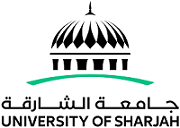Towards high-performance buildings using IoT and AI technologies in office buildings of hot climatethe case of University of Sharjah /
وكيل مرتبط
Alsyouf, Imad,, مشرف الرسالة العلمية
Mushtaha, Emad, joint, مشرف الرسالة العلمية
تاريخ النشر
2022
اللغة
الأنجليزية
الكلمة الدالة
نوع الرسالة الجامعية
Thesis
الملخص
Improving buildings' energy efficiency while maintaining indoor comfort conditions of hot climate regions have been within the high-interest topics among academics. Researchers have noted that introducing an intelligent system for monitoring buildings energy efficiency and thermal comfort conditions is important in improving buildings' sustainability and energy management system. Regarding this concern, this study aims to utilize Internet of Things (IoT) technology and Artificial Intelligence (AI) techniques to integrate better building energy management system and energy conservation in UAE's office buildings. Although IoT and AI applications were developed for smart buildings, there is still a need to apply these approaches on existing buildings to understand their full potentials. Therefore, this study proposes a cost-efficient, feasible, and comprehensive energy conservation approach that use the data from the IoT devices in buildings to monitor its energy-use, and then analyze it through AI techniques. The objective of this strategy will act as a helpful action to improve system's efficiency concurrently without adding the cost of a full building automation system during the renovation phase. To assess the energy efficiency and occupants' thermal comfort within the chosen office building, which is the College of Engineering (M9 Building) in the University of Sharjah, UAE, experimental real-time data were extracted from the installed IoT devices. This building was built since 1997 and old systems were used, so a need for implementing this study on it is essential. Afterwards, Artificial Neural Network (ANN) and Fuzzy Logic (FL) techniques were applied using MATLAB/Simulink software to analyze the collected data and propose a control strategy to maintain the required conditions. The study findings indicates that 22.6% of energy saving is achieved by applying the proposed control strategy. This technique has presented a feasible solution to implement intelligent control strategy t
ملاحظة
A thesis submitted in partial fulfillment of the requirements for the degree of Master of Science in Engineering Management, Industrial Engineering and Engineering Management, College of Engineering, University of Sharjah.
القالب
أطروحات
تصنيف مكتبة الكونجرس
LG368.S56 H87 2022
المعرف المحلي
b14857911







